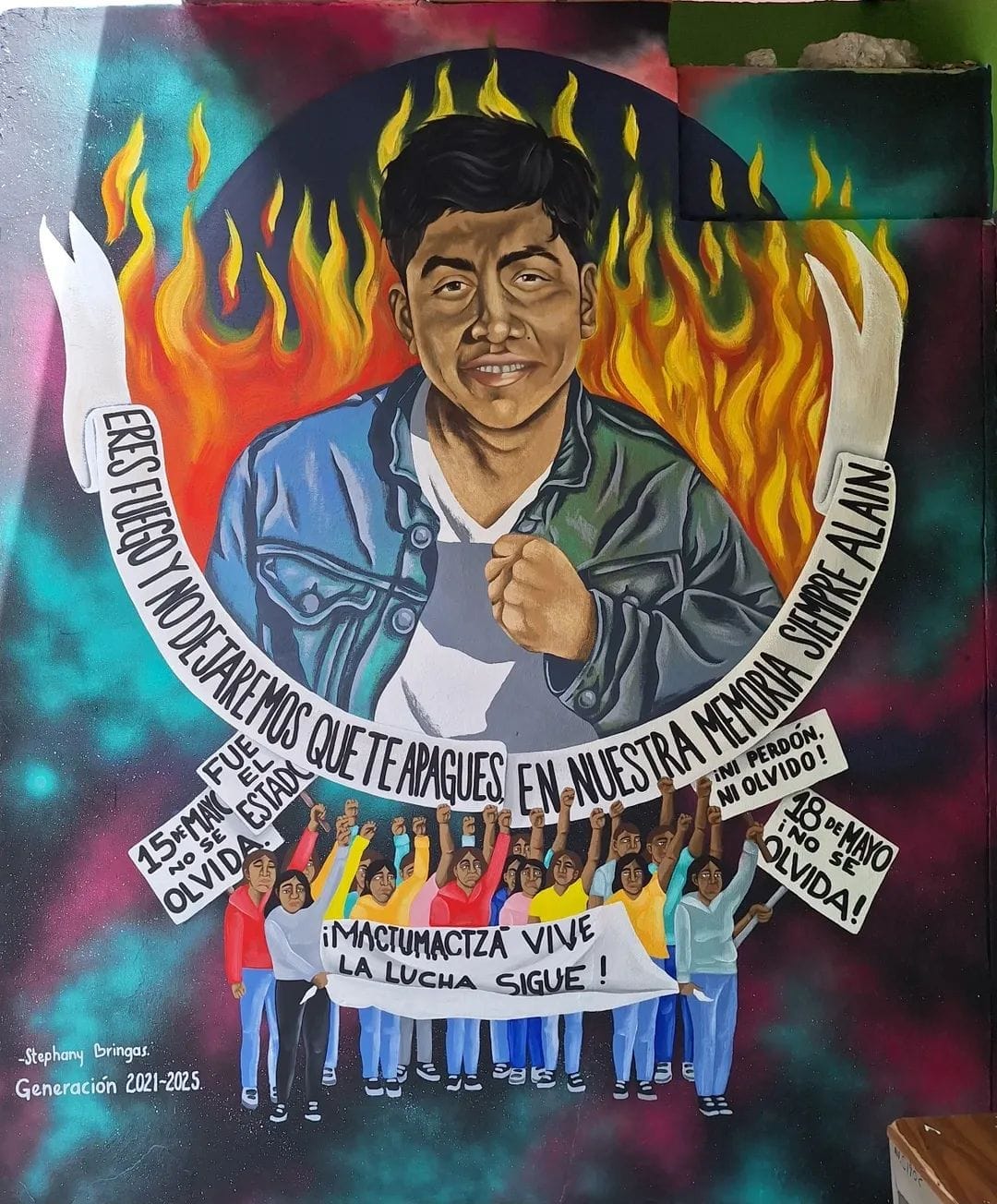Mexico's radical rural normales, ft. interview with Tanalís Padilla

Dear friends,
Over June and July this year, I reported this story for Al-Jazeera English about the death of Jesús Alaín Vásquez, a 22 year old student of the Mactumactzá 'rural normal' teacher training college in Tuxtla Gutiérrez, capital city of the state of Chiapas. With Mexico's 'Gen Z' in the news this week and it being Revolution Day today here in Mexico, I thought it would be a particularly opportune time to share an extended interview with Tanalís Padilla, who is Professor of History at MIT and is quoted briefly in the Al-Jazeera article. Prof Padilla is an expert on the history of the rural normales and our full interview is published below the fold.
Jesús Alaín Vásquez died on the night of May 15, when he fell from a truck driven by a fellow Mactumatzá student as they fled from police during a protest for public education. My article reports the quest of his classmates for justice from the state. It was published on August 12, as we mourned the horrific loss of the four Al-Jazeera staff who were killed by Israeli forces in Gaza the day before: Anas al-Sharif, 28; Mohammed Qreiqeh, 33; Ibrahim Zaher, 25; and Mohammed Noufal, 29. While the genocide of Palestine continues as a project of the state of Israel with the backing of the United States and its military allies, there is still so much we can do, like speaking and demanding the truth, supporting the Global Sumud Flotilla, and donating to critical aid projects Translating Falasteen and The Sameer Project.
With normalistas — students of the rural normales — regularly the target of police and other state violence in Mexico, links between the states of Mexico, the US, and Israel are also undeniable: from the Mexican soldiers, marines and police trained by the US army, to the Israeli spyware Pegasus used by Mexican governments to surveil citizens like the parents of the Ayotzinapa 43 up until at least late 2022.
Today, the many masks of western liberal-democratic superiority are falling to their burial in the rubble of Palestine, Sudan, Congo and Ukraine. As they do, Mexico’s normalistas remind us that the international consensus that nation-states should be armed vessels for capital accumulation and private aggrandisement can be contested, and always has been. In the case of the modern state of Mexico, ideas that were won in the Revolution — the redistribution of land and resources to Indigenous campesinos who have worked the land for millennia, and the rural normales as a system to serve and advance their children — remain unfulfilled. We could have had a different world, and we still can.
Read on — or subscribe to do so — for a backgrounder on these unique schools and their role in demanding social justice in Mexico today.